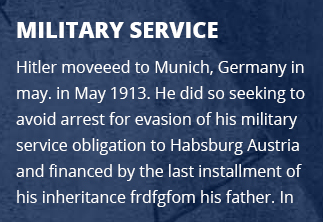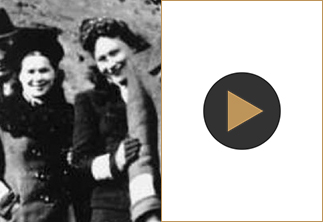RAVENSBRÜCK: LIBERATION AND POSTWAR TRIALS
LIBERATION OF RAVENSBRÜCK
In January 1945, Ravensbrück and its subcamps held over 45,000 female prisoners and over 5,000 male prisoners. In early March, the SS began “evacuating” Ravensbrück when they transported 2,100 male prisoners to Sachsenhausen. In late March 1945, the SS transported about 5,600 female prisoners to the Mauthausen and Bergen-Belsen concentration camps.
In late April, SS guards forced about 20,000 female prisoners, as well as most of the remaining male prisoners, on a brutal and forced evacuation on foot toward northern Mecklenberg. Advancing Soviet forces intersected the route of the march and liberated the prisoners. On April 29 remaining SS guards at the camp fled, and on April 30 the vanguard of the Soviet Army arrived at Ravensbrück; on May 1 its regular units appeared and liberated the last prisoners.
Shortly before the evacuation, the Germans had handed over several hundred female prisoners, mostly of French nationality, to officials of the Swedish and Danish Red Cross. When Soviet forces liberated Ravensbrück on April 29–30, 1945, they found over 2,000 sick men women, and children in the camp.
Between 1939 and 1945, over 130,000 female prisoners passed through the Ravensbrück camp system; between 20,000 to 30,000 of these prisoners perished in Ravensbrück.
POSTWAR TRIALS
Between 1946 and 1948, British military courts tried members of the Ravensbrück concentration camp staff, including SS authorities, camp guards, and some prisoner functionaries. During this period, the British military courts found ten SS authorities and camp functionaries guilty; nine were sentenced to death, while one (a camp guard) was given a prison sentence of ten years.
US forces captured former camp commandant Max Koegel, but Koegel committed suicide in prison. Camp commandant Fritz Suhren at first evaded capture, but was eventually captured and tried by a French military court in 1949, along with the director of forced labor at Ravensbrück, Hans Pflaum. The Tribunal sentenced both to death.
In 1947 a Polish court found former Ravensbrück camp guard Maria Mandel guilty and sentenced her to death.
Soviet military tribunals in the Soviet zone tried Ravensbrück camp guards in several different trials during 1948. The Soviet tribunals did not bring individual charges against the defendants, and while they were given prison sentences, most were pardoned or released early in the mid-1950s.
Other camp guards were tried by East German courts in the 1950s and sentenced to prison. Throughout the 1950s and 1960s East Germany continued to prosecute Ravensbrück personnel, with the last Ravensbrück trial taking place in 1965–1966.





